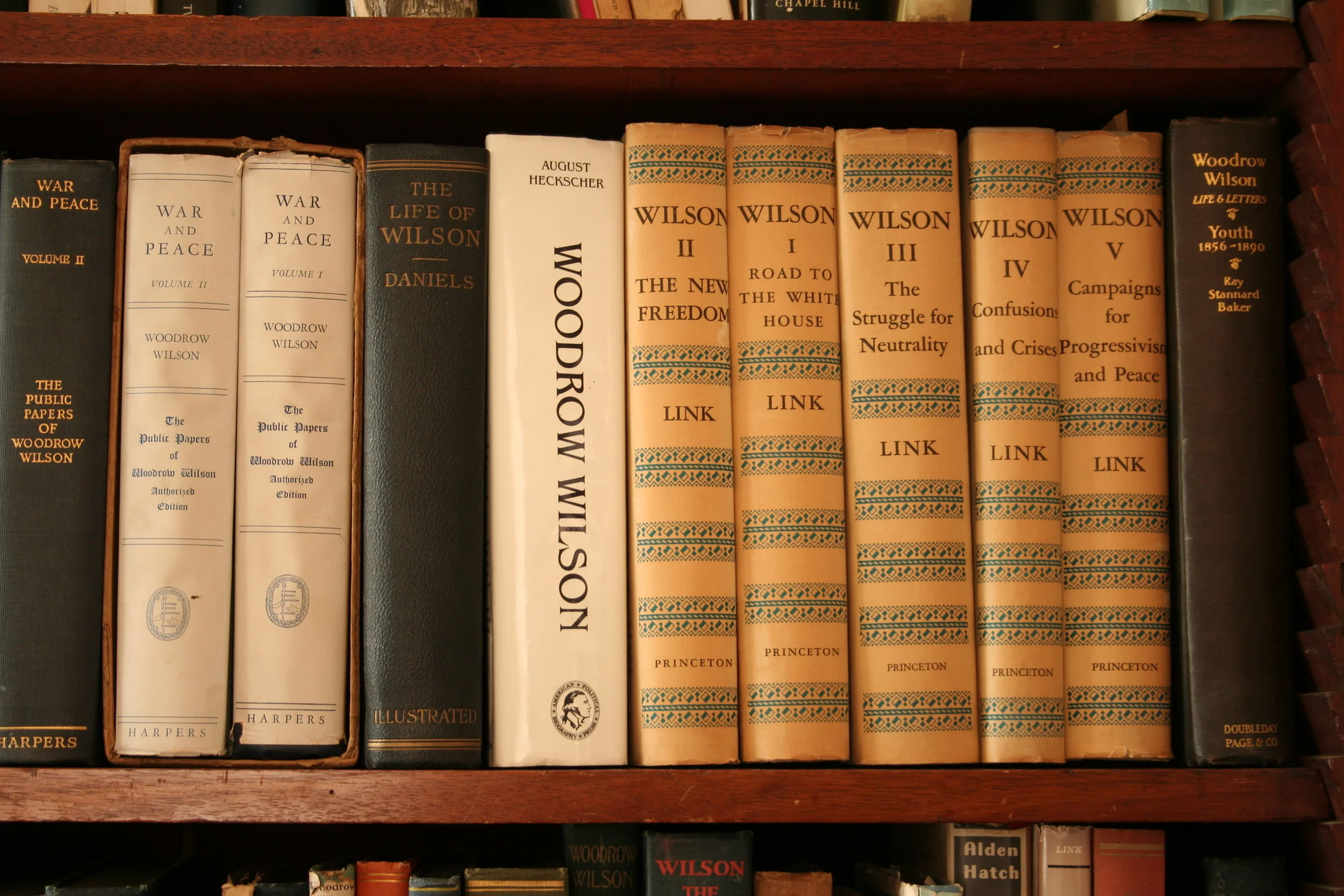The George L. Harrison Collection
/1918 Portrait, George L. Harrison Collection
Here in the archives of the Woodrow Wilson Presidential Library, we have several collections that have come to us because of their connection to other donations. The archivists took them on because of their value to research the history of the Wilson era. However, in a few cases, the collections also contain items that would be interesting to researchers working on different periods. An excellent example of this can be found in the George L. Harrison Collection.
Letter from Committee on the History of the Federal Reserve System to George L. Harrison
1928 List of Responsibilities Assigned to Bank Deputies, Just before Harrison became President
Harrison married Cary T. Grayson’s widow after a decades-long friendship with the couple and was even involved in bringing Dr. Grayson papers to our library. Harrison also knew Edith Wilson quite well. The Grayson family gave us material connected to these relationships, along with various papers that still remained in his personal files after he died. Once processed, the collection held nearly sixty archive boxes. We will cover some of the interesting documents from the Harrison Collection during the years of Wilson’s life here. In a later post, I will discuss some later records that would also be interesting to historians, for you see, George Harrison served for years as general counsel and then president of the Federal Reserve Bank of New York, one of the most powerful financial institutions of the 20th century. Various other institutions hold some of the Harrison Papers, but hopefully as our collection continues to be cataloged and digitized, the value of the collection at the WWPL will become known to researchers worldwide.
White House Invitation, 1910, George L. Harrison Collection
Harrison’s father moved the family to Virginia when he became the army commander at Ft. Monroe. After finishing school in Washington, DC, George L. Harrison went on to study at Yale. His roommate in college was Robert Taft, the son of the president of the United States. Just weeks before graduation, George was invited to bring a guest to the White House.
That year, both Harrison and Taft were members of the infamous secret society at Yale, Skull & Bones, though it is unclear how secret it was since members were listed in the school yearbook.
After graduating, Harrison studied law at Harvard, where he ended up rooming with Robert Taft again one year. Harrison spent the summer traveling in Europe after finishing at Harvard in 1913, before clerking for Oliver Wendell Holmes at the Supreme Court. Then he became assistant counsel for the Federal Reserve Board, at 27.
From this path of privilege and success, Harrison responded to the outbreak of war by joining the Red Cross, to go to Europe to aid American soldiers. The many personal letters and documents from Harrison’s early life in the collection give some indication of why he impressed so many of the people he met, and how he was able to go on to have such a large role in global finance.












